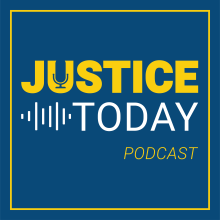Bar Associations
Guardianship Abuse: Bad Apples or Tip of the Iceberg
Incentivized Informants and Wrongful Convictions: Understanding the Risks and Mitigating the Effects
The Hidden Costs of Reentry: Understanding the Barriers to Removing a Criminal Record
NIJ hosted a webinar to discuss under-researched aspects of reentry: expungement of criminal records and the impact of those records. This webinar includes a presentation of ongoing research projects examining the impact of legal aid for expungement and past research projects studying the accuracy and permanency of criminal records and the prevalence of collateral consequences of conviction. A Q&A session will conclude this webinar.
See the YouTube Terms of Service and Google Privacy Policy
Coordination of Criminal and Juvenile Court Proceedings in Child Maltreatment Cases
Evaluation of Safe Horizon Family Court Program
Mothers & Children Seeking Safety in the US: A Study of International Child Abduction Cases Involving Domestic Violence
Since the implementation of the Hague Convention on the Civil Aspects of International Child Abduction, thousands of abused women have faced complex litigation after seeking safety in the United States. Many have been court ordered to return their to the country from which they fled and often to their abusive partners custody. The presenters discussed the findings of an NIJ-funded study focusing on the experiences of women who as victims of domestic violence in another country, come to the U.S.
See the YouTube Terms of Service and Google Privacy Policy
Just Wrong: The Aftermath of Wrongful Convictions
The strength of our criminal justice system depends on its ability to convict the guilty and clear the innocent. But we know that innocent people are sometimes wrongfully convicted and the guilty remain free to victimize others. The consequences of a wrongful conviction are far-reaching for the wrongfully convicted and the survivors and victims of the original crimes.
See the YouTube Terms of Service and Google Privacy Policy
Addiction, the Brain, and Evidence-Based Treatment
The criminal justice system encounters and supervises a large number of drug abusing persons. Punishment alone is a futile and ineffective response to the problem of drug abuse. Addiction is a chronic brain disease with a strong genetic component that in most instances requires treatment. Involvement in the criminal justice system provides a unique opportunity to treat drug abuse disorders and related health conditions, thereby improving public health and safety.
See the YouTube Terms of Service and Google Privacy Policy
Prosecuting Cases of Elder Abuse
This panel will feature NIJ-funded research that has direct, practical implications for the prosecution of elder abuse cases. Panelists will present findings from a study of prosecutors in three states that examined the factors that influenced their decisions to prosecute elder financial abuse cases. The panel will also provide the results from an evaluation of five innovative court-based models that target perpetrators of elder abuse.
Prosecuting Cases of Elder Abuse - Panel Discussion at the 2010 NIJ Conference
Estimating the Financial Costs of Crime Victimization
Indigent Defense: International Perspectives and Research Needs
National Study of Collateral Consequences for Criminal Convictions
National Study of Collateral Consequences for Criminal Convictions
Prosecuting Cases of Elder Abuse


